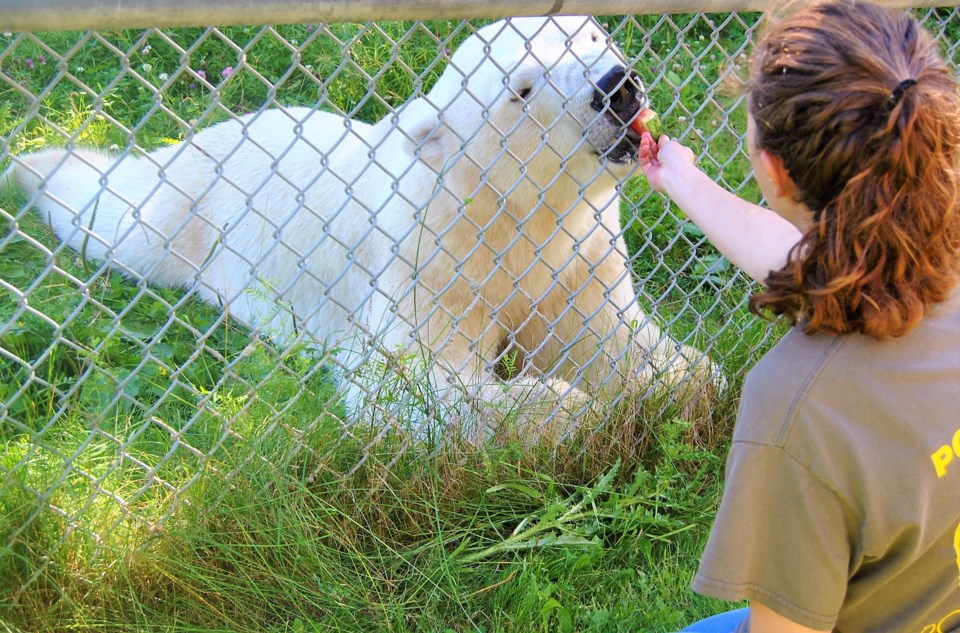COCHRANE - Tracking devices are being tested on polar bears at a Northern Ontario facility.
Over the last couple of months, the Cochrane Polar Bear Habitat has been part of a research study testing minimally invasive tracking devices that are being developed by Polar Bears International and 3M.
Amy Baxendell-Young, the habitat's manager, told Cochrane council on Tuesday (March 12) that the new device could replace the current tracking collar technology.
It's attached between a bear's shoulder blades and is being tested on bears in the wild and other human care facilities.
Henry, a 10-year-old polar bear at the local facility, is still wearing his device, a record amount of time among all participating facilities, said Baxendell-Young.
“Polar Bears International will actually be using our data ... as well as pictures and videos in an online webinar that they'll be doing. So, the habitat's going to be featured all around North America and whoever's joining on that webinar, which is really cool,” she said.
“We have also been invited to help write that paper, so our habitat name and Brooke Etherington, who's on our animal care team will be on that paper, too. We're really proud to be part of that. And, you know, doing what we can for older research and science and getting our name out there and lots of different fields.”
Baxendell-Young said all of the polar bears are doing well and have been enjoying winter.
“Inukshuk turned 21 in January, which makes him a senior bear. He is still very active and healthy, but we have started him on a joint supplement to help support his mobility as he ages,” she said.
“Henry and Ganuk, aged 10 and 14, are both healthy and continue to thrive in this northern environment.”
In December, Baxendell-Young said they conducted sedation procedures on all three bears, one of the reasons being to insert the tracking devices.
“The first in almost 10 years, thanks to the excellent care and training for voluntary veterinary behaviours they receive from the animal care team. We worked with several veterinarians from Ontario and Manitoba, and all three procedures were conducted without issue,” she said.
“In addition to general health checks, Ganuk received an intradermal scratch test to gain further insight into a skin reaction he experiences and x-rays of his front paws.”



